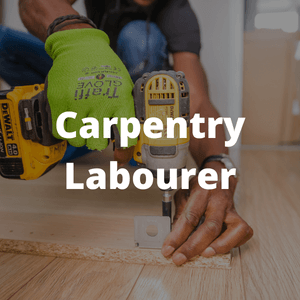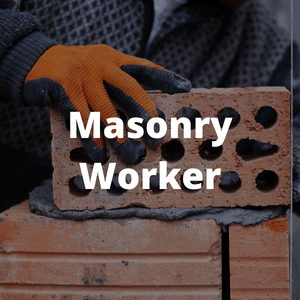Where to Start?
Many people may believe that they have no choice but to go to university and then to spend their days at an office from 9 to 5. While that is great for lots of people, construction is another great and completely different path that can and should be a top choice for many Canadians. A career in residential construction has a long list of advantages and benefits. Construction is an excellent field to work in if you want to learn in a different, more hands-on way, on a wide variety of projects, in a variety of different environments. Construction provides excellent opportunities for advancement and development, and great financial advantages. Starting as an entry-level labourer, you will have the opportunity to master new skills and enhance your career. Those with management ambitions will eventually be able to lead their own construction companies.
There are several diverse ways you can start a career in residential construction. Keep in mind that education and training are provincial responsibilities, so the details may vary from one province to another.
Becoming a provincially certified skilled tradesperson (also known as a journeyperson) under the apprenticeship system gives you the diversified learning approach of a combination of on-site experience (that you get paid for) and classroom and shop learning in a trade school or college. Typically, you will spend most of your time working on job sites, with 6 to 8 weeks per year in the classroom. At the end of the process, you will need to complete an exam to receive your certificate of qualification. Here are some options to consider:

Apprenticeships
Apprenticeships are a post-secondary learning option for those who are interested in getting into the skilled trades. As an apprentice, you will likely spend 80% of your time working on a job site with a mentor and the remaining 20% in a classroom. You can be formally sponsored by a contractor or builder who will provide on-site training, guidance, and encouragement. Depending on the trade, certification takes 2 to 5 years, but you are earning income all the way through. In this scenario, you find an employer (who must meet certain requirements) to take you on for the duration of the training period, and then register as an apprentice with your province. In some provinces, you may be sponsored by a local Home Builders’ Association or other industry organization that will help you find an employer to train with. Interested in becoming an apprentice? Click here.

Post Secondary Education
Alternatively, you can start with a post-secondary college education to get some knowledge and practice under your belt before approaching employers to take you on as an apprentice. You might even be able to get started on your apprenticeship training in high school through various supporting programs. Click the button below to explore various programs available across Canada.

Short-Term Courses
Not sure what trade you might like to pursue? Colleges offer short-term courses and programs aimed at introducing students to the trades and exposing them to options. Some colleges hold “trade camps” or “trade samplers” for high school or even younger students.

First-Hand Experiences
Get a first-hand look at the industry. You may be able to work in construction during the summer holidays (just as the CEO of the Canadian Home Builders’ Association did!) or through a job placement as part of your school’s curriculum. You can also secure your own employment outside of the apprenticeship system and work to get enough experience while also taking classroom and shop courses. Talk with new home builders, renovators, and trade contractors in your community about employment opportunities.

In the residential construction industry, there are two primary categories of job opportunities for skilled tradespeople. You can work for a trade contractor or directly for a new home builder or renovation contractor.
- Carpenters, framers, and site supervisors are among the positions hired by new home builders and renovators.
- Plumbing contractors or heating, ventilation, and air-conditioning (HVAC) contractors, for example, are typically independent firms that specialise in a trade and are contracted by builders and renovators. They range in size from small two- or three-person businesses to huge corporations with hundreds of workers.
Trade contractors work on specific projects for new house builders and renovators, as well as providing services to the general public. Many businesses are founded and run by tradespeople who began their careers working for other companies before starting their own business.
Safety
The residential construction industry takes health and safety very seriously. This was demonstrated during the pandemic when construction was able to continue as an essential service across the country, and health and safety measures – a normal part of construction practice – helped keep people safe and working. By law, all trade employers must offer a safe working environment for their employees. Every employee must be educated on safe work procedures.
financial support
The government of Canada offers a number of different ways to help support apprentices through their trade skills journey. And given the skilled worker shortage, more and more initiatives are being launched to help potential workers start their careers in residential construction. Click here to learn more about government grants, loans, and other services that are designed to help apprentices complete their training.
If you’re a high school student interested in joining the trades, here are a few tips to help you prepare before joining the industry:
- Focus on taking math and science class especially in Grade 11 and 12. Knowledge of both these fields will help you when learning a trade. Tutors and online resources are available if you needed.
- If available at your school, take a trades, shop or technology class. These classes will help you learn to apply mathematical and scientific concepts in practical ways.
- Don’t skip out of high school. The majority of employers require you to have a high school diploma.
- Get your driver's license. The majority of employers will expect you to have a license. One of the great things about residential construction is getting to work in different communities around town.
- Take safety courses such as first aid, so that you can safely work on worksites.
- Learn to work on a team. Whether it be joining a sports team or after-school club, employers want to know you can work well with others, contribute ideas and work positively with others.
- Prove to them that you are responsible. Get a part-time job, attend all of your classes, and show them that you can be counted on.

These 7 entry-level jobs do not require any relevant work experience and are a fantastic way to start earning money and gain valuable experience within the trades:







Still not sure where to start? Check our Guide to Getting Hired here.
Find out what job is right for you, take the job assessment quiz!
- https://constructionblog.autodesk.com/construction-careers/
- https://www.indeed.com/career-advice/careers/what-does-a-construction-worker-do
- https://www.careersinconstruction.ca/en/careers/getting-started
- https://www.construct-ed.com/entry-level-construction-jobs/
- https://www.canada.ca/en/employment-social-development/campaigns/skilled-trades.html


